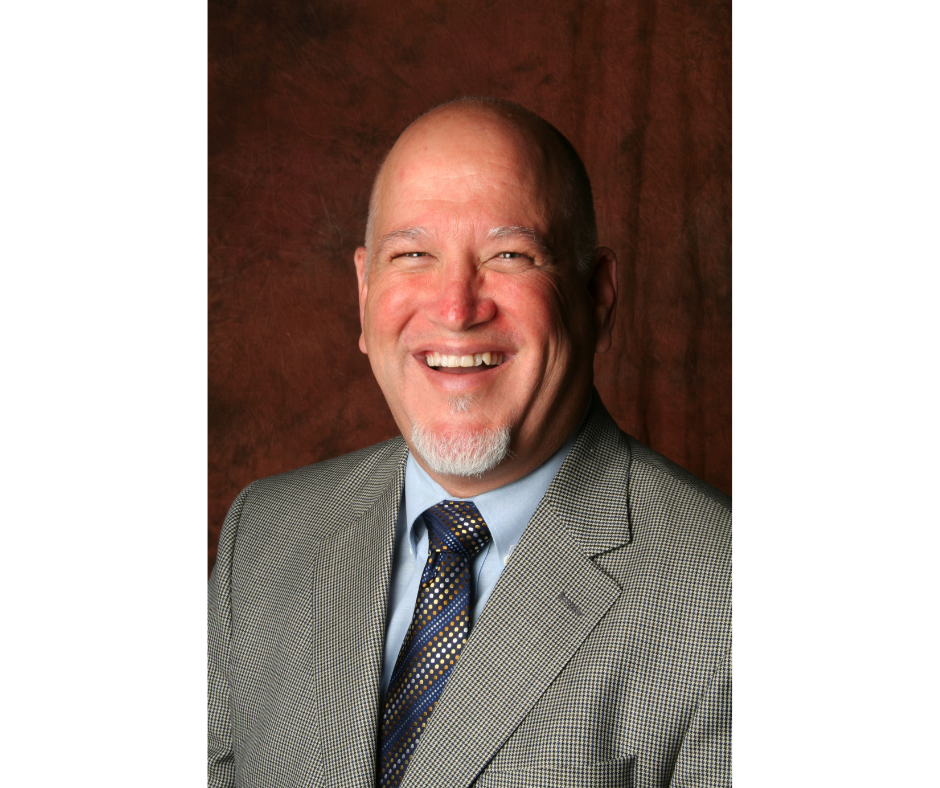
Precinct 1 covers Flint, Gresham, the city of Noonday, and parts of Bullard and Tyler, and has been represented by Commissioner Jeff Warr since 2009. With Warr’s retirement, two candidates are vying for the seat: Democrat Peter Milne and Republican Neal Franklin. Journalist Claire Wallace sat down with both Milne and Franklin for in-depth interviews.
As a tax lawyer and Vietnam-era veteran, Milne believes he has the know-how and dedication to rework the county’s budget to start on his “vision” for Smith County — from his plans on parklands to reforming the county’s criminal justice system.
Here, Milne tells The Loop where the county could be doing more and why he feels that party politics have no place in county government.
The conversation has been edited for length and clarity.
Tell me a little bit about your platform. What issues would you plan to tackle in the office of county commissioner?
The main issue I see with the county commission right now is that it’s just been on autopilot for so many years. [It] provides the big five essential services: Law enforcement, jail, roads, general county services. They limit themselves just to those things.
There doesn’t seem to be any vision about what else could be done because the county is a limited government, but there’s a lot of law that would be helpful. For example, there’s not a county park in Smith County and we have a lot of open space right now. Interest rates are cheap. You know, we borrowed to build roads, to build structures, but we’re not investing in any open space. After a while, the open space fills up — just look what’s happening on Old Jacksonville Highway. When you go south towards Gresham and Flint, it’s filling up.
Let’s look outside the box. Let’s look at what we can do. What’s going to attract people to Smith County in the future? What’s going to attract business to Smith County? What’s going to attract families to Smith County? What’s gonna make them want to stay here or work here and live here? It’s not going to be a county that really doesn’t have anything to offer in the way of road coordination in the area between counties. There’s obviously no zoning in the county and that’s a problem with the law, but there are ways to work around that.
In the county, you can go build yourself a beautiful, million-dollar house and somebody can put in a chicken farm next to you. The subdivisions are done in a bubble. The county regulates everything within that bubble — the road location, drainage, all the things like that. But that can be plopped down anywhere without regard to what school district it’s in, without regard to what it’s going to do to infrastructure, without regard to putting a strain on traffic. If the law needs to be changed to allow the counties to do more things, then the county should be lobbying for that.
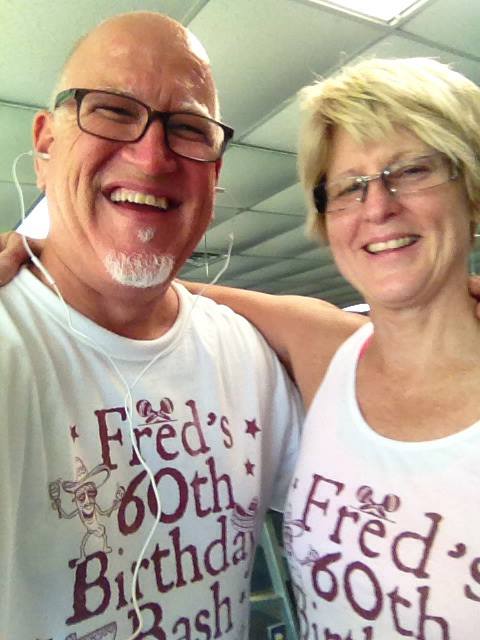
What would you try to work on through policy? What would be your top three biggest concerns you would push?
Well, I’ll just let you know nothing can be done without money. You’ll hear arguments that sure, these are good ideas, but it’ll take money to buy open space. It will take money to hire lobbyists. I would want to reprioritize the budget — make some room for some of this.
We spend 12% of the budget on the jail. The jail is a black hole. The jail just sucks the money out of the budget. So we spend more time incarcerating people, $85 a day. That’s what it costs the taxpayer to incarcerate someone. I’d want to make the jail more cost-effective. The one way that we can do that is we cannot incarcerate so many people.
I know that on the campaign site you have a focus on criminal justice reform. What would that look like through policy or initiatives?
Well, the initiative would be [to] have a public defender’s office.
If you go look at the budget and see the amount of money that is spent on capital crimes for indigent defense and just indigent defense in general, and then what goes into the courts, like CPS cases — those aren’t criminal cases. The indigent folks could be better served with a public defender’s office and there’s an economy of scale there. If you take a look in West Texas, there’s a public defender’s office that covers capital crimes for 43 counties and they all share in the costs of that public defender’s office. The same thing could be done for East Texas. If you look at the amount of money that goes into the individual attorneys and the community for indigent defense, it’s a lot of money.
Can you help us understand what a public defender’s office is and how could it function within our county?
A person who is accused of a crime who can’t pay for an attorney is afforded, at taxpayers’ expense, representation. Think about Miranda [Rights] — if you can’t afford an attorney, one will be provided for you. There are two ways to provide those things. You can provide them if the prosecutor is represented by the district attorney. The prosecutor’s got an office. The prosecutor’s got a deputy and they’ve got investigators. They’ve got staff, they’ve got the whole mechanism of the state behind them.
The indigent accused have been given an attorney out of the pool from the community and that person’s been given a little bit of money. That person who represents them may or may not have an investigator. That person representing them may or may not have the experience. You know, they may or may not have someone else they can go to. Any of the associate district attorneys can go to the main district attorney for advice and they have policies where they’ll handle cases kind of uniformly. But for indigent defense, there’s no uniform handling of cases.
If you have a public defender’s office, that’s saving the taxpayer money. Look at the other counties that do this — their budgets for indigent defense have gone down, the representation is better, more of the accused are released on bond or bail, so they’re not locked up for two or three years awaiting their trial. That would be very helpful and freeing up some money from the jail.
The other area of weakness [is] what’s being spent for public service. That’s going to be indigent health. That’s going to be veteran services. Those programs are woefully underfunded. Smith County has no idea how many homeless veterans are in this county. There’s a veteran service officer that the county funds, but that person really is responsible for helping veterans with the veterans court and directing that veteran to other people for help. There are programs out of the state that the county could actually get some money and help and veterans [who] need rent assistance, need cash assistance. That could also be done. It’s not being done.
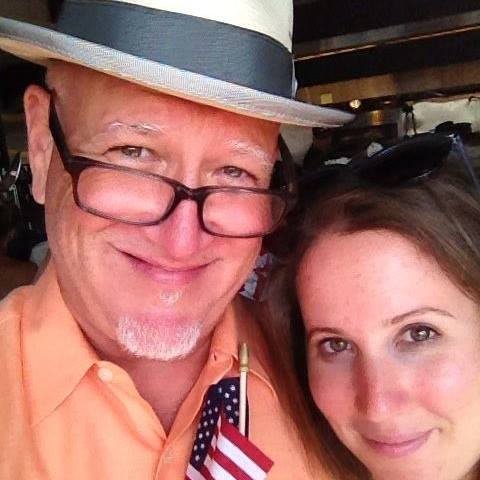
You are a veteran of the Vietnam War era and you have used that as a part of your campaign platform. What do you believe the advantage of having a veteran on the county commissioners court is?
Well, [for] any anybody that’s gone through military service and has served, you have to go through a process where you’re broken down and then you’re brought back up within an organization. That organization is a team organization, it’s not an ego organization. There’s one person in command, and everybody else does their bidding, but they do it across racial lines, across political lines. You have a mission and you accomplish your mission. You do everything that needs to be done to accomplish that mission.
And so I think that the benefits of having a veteran on the commissioner’s court is you have someone who knows how to work to solve the problem, to complete the mission, to do whatever it takes to complete the mission.
I’ve had more people speak to me and like what I have to say, and then they’ll say, “Are you a Democrat or a Republican?” And I’ll say, “Well, you know, I voted both ways in the past for the person that I would like to see elected, but for this cycle, I’m a registered Democrat.”
Commissioners court is not gonna come take your guns. It doesn’t regulate abortion. Commissioners court doesn’t [handle] all those hot button issues that are discussed at the national level — the commissioners court just doesn’t do those things. So why wouldn’t the voter want the best qualified person to be in the job?
I think having someone who served is an indicator that they’re made for service, whether you serve the military or the public in other ways. That’s a service-oriented person who knows how to work with other people to do the job.

You are not only a veteran. You’ve also been a geologist and worked for land management, and now you are a tax lawyer. As you just said, you called yourself the most qualified candidate. Can you talk me through why?
If you take a look at what the county commissioner is spending a lot of time on, they spend a lot of time on making a budget and spend a lot of time analyzing tax rates. What are the tax rates that we have to impose within the constitution and the law to be able to do what it is that we want to do on a policy level? Essential services are a given. Those essential services have to be done. You have to be able to look at a budget and to work a budget and be able to develop that budget and understand where those numbers are coming from.
I’ll give you an example. In the last budget cycle, the county made its projections of tax revenue for the upcoming year based upon the past year. I believe that their estimates were very rosy when it comes to sales tax and mixed beverage tax. The amounts of money that they projected they were going to make for those two things were not based on reality — they’re based on hope. The bars have been closed; [they] are just now opening. So although mixed beverage tax is just a small portion of the budget, sales tax is 19% of the budget. [The] mixed beverage tax, I think was another 600 or $700,000 that was being estimated.
You have to [have] a tax perspective from being a tax attorney. I know how to look at budgets. I know how to develop budgets. I’ve helped hundreds of clients start businesses, from the business formation to helping them get set up with a bookkeeper to talking about basic budgeting and tax consequences of what they want to do.
I have a geology and engineering background. We have a roads director who’s an engineer, but I don’t think it would hurt when you’re asked to look at contracts that are being put out for bid. From a legal standpoint, it’s helpful to be able to look at a contract and know what the terms of the contract are, what are the pros and the cons. It would be helpful to the taxpayers of Smith County if someone could read the plans, if someone knew that the numbers looked inflated, if someone else knew that that something is off. It doesn’t hurt to have more than one set of eyes with some knowledge on those plans and those specs and those contracts.
I don’t believe my opponent has that skill. He has helped plenty of businesses as a business coach, but I don’t think he has the skill of the contract work or the engineering part or the geology part.
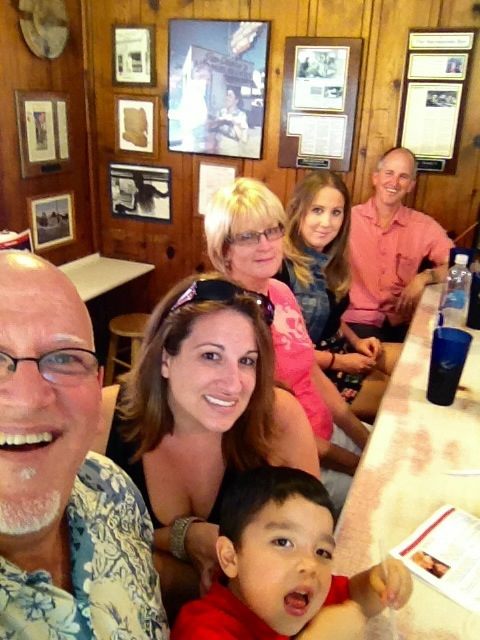
Looking through your campaign site, I did notice that you have called the president a “demagogue” and indirectly a “satanic boss.” You’ve also said that “Joe Biden doesn’t have anything to do with our county elections.” I’m curious if you believe that bringing national politics into local government elections hurts or helps a candidate.
I don’t think it’s helpful. And I think going back and looking into my remarks on that, I don’t think it was very wise to say those things.
I mean, I believe those things, but again, the point that I was trying to make is that those issues don’t really trickle down to us. At the local level, we need law enforcement, we need to have correctional facilities, we need juvenile facilities. We need essential services. I mean, that’s the fundamental reason for the county government, is essential services.
When you take those [partisan] positions, you’re distracting the county from what really needs to be done. You’re spending time on what doesn’t matter for county government, it matters to individuals and how they view the world. I think it’s a distraction and I don’t think it helps.
I also know you’re a part of the local Democratic club, and the Democratic party currently has been having conversations about what the role of government should be in people’s lives. What do you believe that the county commissioners court’s role should be to its constituents?
I believe that I believe the primary role is to provide those essential services, but you can broaden what an essential service is. I think an essential service in the future would be parkland. It could be open space. Essential service could be a better coordination [of] traffic between the different counties. An essential service could be the ability to live in the county and develop your house, your land, your property in the county without the fear that someone’s going to come in next door to you with some God-awful junkyard or chicken processing plant or something like that. To be able to enjoy your property and not be fearful about what else might be there. These essential services can also be what’s the long term development for our county. What do we want our county to look like 25 years from now?
I grew up in North Texas and Southeastern Oklahoma, just right across the Red River, up near Bonham. Our mother moved us to California when I was 16, and then I lived there until 2003 and I came back to Tyler. What I saw in California in the areas where I lived, I saw the county lands just be consumed by development. California had some zoning laws and some things like that different than here, but it was still just consumed. So do the people of Smith County want to be able to, 25 years from now, just see that the county lands are just consumed, exploited for the benefit of Tyler, for the benefit of Flint, Greshman, the areas that are expanding?
Those things in my mind are just as essential as locking somebody up or arresting somebody or making a road. It’s essential to think about, what does the Smith County of the future look like and will that attract people here? Will people want to come here, will businesses want to come here, will people want to live here, will people want to stay here? So an essential service would be providing for the health of the county in the future.

You just briefly mentioned you’re not a native East Texan. You described yourself as being from North Texas. You went to California and you moved here in 2003. In your opinion, what does East Texas and Smith County specifically make running for a public office worth it?
Well, this is my home and it’s going to be my home until I die. I hate to see a repeat of what I saw in California — just this unbridled, uncontrolled development without any vision of what it could be. So I’m thinking about my kids and my grandkids. I’m thinking about all the kids that live here now. If you think about that, you know, the planet is being fouled and destroyed enough. There has to be some change and the best place to implement that change is at the local level.
Is environmentalism outside of the parklands and open spaces part of your campaign?
I think the county could do a better job in assessing what infrastructure and what problems are going to come as a result of climate change, if it’s going to be drier or wetter, what are those scenarios? What do those look like for county infrastructure? What does it look like for bridges? What does it look like for waterways? What does it look like for roads? What does it look like for sewer wastewater, for the dump? What happens if there are climate refugees? They’re going to move inland and they’re going to come up from the coast. It’s debatable right now whether the areas of Louisiana are getting hit for the third time with hurricanes this year — are those going to be habitable for much longer or are those people going to go? If they come here, how’s the county going to accommodate them? What’s the plan? I don’t think there is one.
You specifically expressed issues about the “one-party rule.” What does that mean, and how does it apply to Smith County commissioner’s court?
Anytime that there is a complete suppression of other ideas, it’s not good for the collective when you have only one point of view. And the one point of view — the Smith County point of view — is keep our tax rate as low as possible and provide the minimum amount of essential services that we can provide for that tax rate. That’s how it’s been, and that’s how it’s going to be unless the voters decide that maybe it’s worthwhile having a vision for the county, having a plan for some other things, thinking about what the county is going to look like and addressing those issues.
Whether it is one-party rule on the right, one-party rule on the left, it’s still one party, it’s still one idea. It’s still one way to do it. Especially in the past 15 years, the one-party rule has led to, “We’re not going to compromise on anything. We’re going to do it our way or the highway.” That attitude and that lack of even listening to other people — it doesn’t serve the people of Smith County well, that lack of [being] willing to work with someone across a political or ideological line. We don’t need that in county government. We need the best-qualified people in place to collaborate for the benefit of the citizens of Smith County.
Would you be open to raising the tax rate?
I think that it is irresponsible during a time of COVID when the county’s got money coming like our grants. That money is not dependable. It’s subject to the whim of whether Washington wants to do something or not. You know, it trickles down out of the feds and through the state. The county is funding a lot of their COVID response on that. Now at the same time, it’s kind of a windfall and allows the county to cut the tax rate and still maintain it’s essential services. But what happens if this pandemic continues for another year? What happens if that money dries up? Now, all of a sudden you’ve got a budget shortfall. I certainly would not cut the tax rate. That benefits people that own property. That doesn’t benefit renters. That doesn’t benefit people that do not own property. It benefits a few people, but it hurts the collective because you’re taking money away that could be used to prop the budget up.
Let’s talk about Precinct 1. It includes Flint, Gresham, Noonday, parts of Bullard and parts of Tyler. It is extremely diverse with urban sprawls and rural development. So how would you plan on keeping up with your constituents in such a vast and growing area?
It’s the fastest-growing part [of the county] — it’s tough. I never imagined that I would be running this campaign stealthily and not getting out among people. I never imagined that.
And then the other thing that kind of constrained me is my mom’s 86 years old. We have been super careful with the COVID, taking it seriously and keeping her safe.
I’ve been thinking a lot about that. It’s a big area, but you just have to get out there and work it. You just have to have town halls. You just have to meet people where they are. First of all, my office would be open. My cell phone would be available to anyone who wanted to talk to me. My door is open. I have email. And then I would make plans to get out in the precinct with whatever schedule the people want.
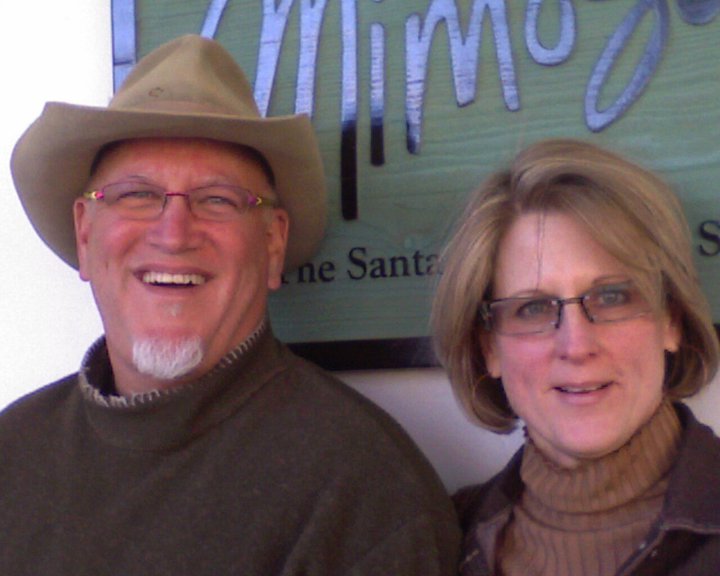
And what do you think that Precinct 1’s biggest issues are right now?
Well, there [are] a lot of complaints about traffic, complaints about incompatible development in the county. That’s what I hear the most. And just bemoaning a loss of the rural character of the county. There’s another way that you can preserve the land too, without having to spend money, is encourage people to take up conservation easements.
So conservation easements work well around bodies of water, but there could be a conservation easement where a landowner might donate the property or promise not to develop the property, which is a conservation easement to the county. And then a portion of that land could be used for a park or open space or trails or ATV riding or bicycling or anything at all that brings recreational opportunity. The recreational opportunities are what make businesses decide to come here or to stay. If there was a lack of those recreational opportunities, they’ll look elsewhere. So just preserving the rural character of the county is a huge issue.
Are you running as a Democrat? I saw on your campaign site that you said you prefer not to identify with ideological politics, but in this interview, we’ve also talked about how you are a part of the county’s Democratic club.
Yes, I’m running as a Democrat. The reason why I made that choice is because there were three Republicans that came out, and so it seems to me that if I ran as a Republican, it would be a losing battle for me. In the polarized political environments that we’re in now, is it more likely that I can win some moderate Republicans over to vote for me, or is it more likely if I ran as a Republican that I could have some moderate Democrats vote for me?
Well, in this political environment, I believe that there’s so much hate on both sides. I don’t believe that a Democrat would vote for a Republican, period. There’s a lot of Republicans that won’t vote Democrat, period. But I had to make a choice about what was more likely.
I felt that I could sway some moderate Republicans coming my way more. It’d be more likely that I could do that than it would be for me to sway some moderate Democrats to come to a Republican candidate.
Is there anything else that you’ve done to help serve the community and Tyler? Do you serve on any boards?
I served three terms on Historic Tyler as a board member. I served as a board member of the Smith County Bar Foundation. I do a fair amount of pro bono work for the Lone Star Legal Aid. I try and take one client per quarter and work their case pro bono.
My final question for you: Is there anything I didn’t ask that you want people to know?
What I would like people in Smith County to know is I’m not an extremist. I’m willing to work with anybody, as long as it reaches an outcome that benefits Smith County for the people now and the people in the future. If that’s the kind of candidate that you want and I’m the guy. If it’s not, then I’m sorry.
Love what you're seeing in our posts? Help power our local, nonprofit journalism platform — from in-depth reads, to freelance training, to COVID Stories videos, to intimate portraits of East Texans through storytelling.
Our readers have told us they want to better understand this place we all call home, from Tyler's north-south divide to our city's changing demographics. What systemic issues need attention? What are are greatest concerns and hopes? What matters most to Tylerites and East Texans?
Help us create more informed, more connected, more engaged Tyler. Help us continue providing no paywall, free access posts. Become a member today. Your $15/month contribution drives our work.







